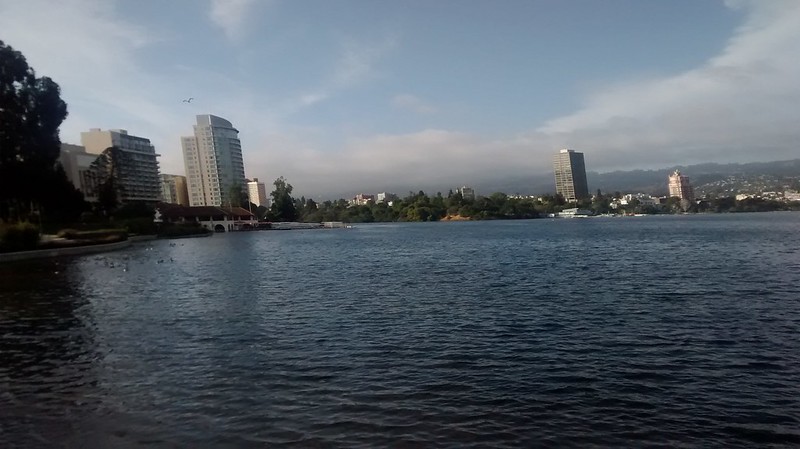Urban Salmon Spotted In Oakland’s Lake Merritt
Salmon in Oakland? Yes, a pair of upstream migrating Chinook salmon were recently observed on Glen Echo Creek adjacent to the Veterans’ Memorial Building near Lake Merritt. pic.twitter.com/dJhB7ymS2P
— City of Oakland (@Oakland) January 13, 2022

As a Bay Area native, I’ve always had a soft spot in my heart for Oakland, probably because despite growing up on the other side of San Francisco Bay I’m a longtime fan of the city’s sports teams – specifically the Oakland A’s and the Golden State Warriors (though basketball’s Warriors now play back in neighboring San Francisco and the baseball team’s only chance to stay in town is to wade through a lot political mud to get a new ballpark or risk relocating out of the city. And I guess I’ve always had an affinity for the East Bay despite my Peninsula roots.
But here’s a non-sports story about an Oakland landmark: Lake Merritt, a saltwater lagoon connected via creeks to San Francisco Bay, now has king salmon swimming in its waters again. Here’s more on the Chinook invasion in the heart of what those in the Bay Area refer to as “The Town” from S.F. Gate:
“It’s rare,” says James Robinson, Executive Director of the Lake Merritt Institute, a local organization that partners with Oakland schools and volunteer groups to clean up trash along the lake and its nearby creeks.
Though they were once prevalent in the lake, salmon typically can’t survive in the area now due to man-made culverts and heavy pollution. Culverts are flood control stations, and floodgates have to be open in order for salmon to migrate and pass through. During storms, these floodgates are often closed to prevent flooding.
Salmon aren’t the only species in Lake Merritt’s ecosystem that have dwindled. Robinson says that local shrimp populations have significantly declined due to an invasive species of Japanese shrimp. He and other conservationists speculate that the shrimp, which may have been brought into the Bay via container ships, were “spewed out” via water ballasts along with other types of species.



